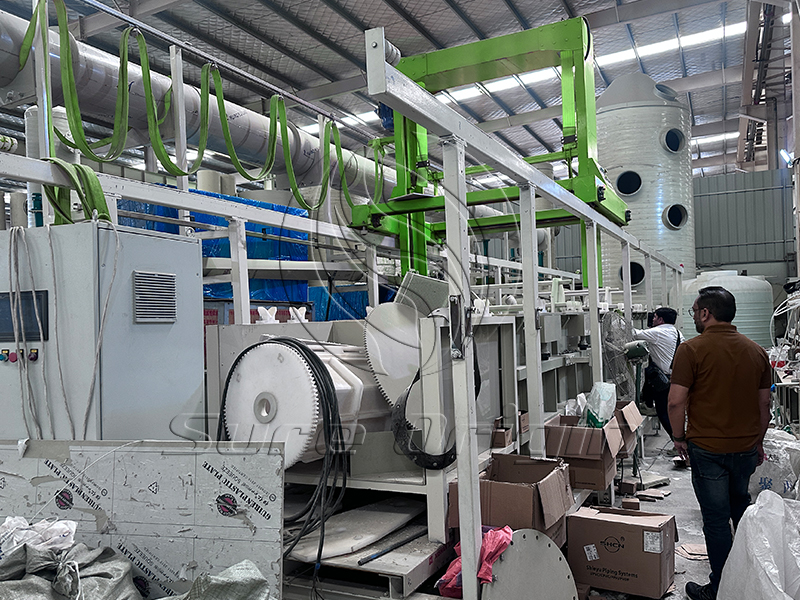Tire pyrolysis plants are innovative facilities designed to address the mounting challenge of end-of-life tires while promoting environmental sustainability. But what exactly are tire pyrolysis plants, and how do they work?
Tire pyrolysis plants utilize a process called pyrolysis to thermally decompose waste tires into valuable byproducts such as fuel oil, carbon black, and steel wire. This process involves heating the tires in an oxygen-free environment, which prevents combustion and allows for the breakdown of the tire materials into their constituent components.
The primary component obtained through tire pyrolysis is fuel oil, which can be used as a source of energy in various industrial processes or further refined into higher-value products such as diesel fuel. Carbon black, another valuable byproduct, is commonly used as a reinforcing filler in rubber products, plastics, and other materials. Additionally, steel wire recovered from the tires can be recycled and used in various manufacturing processes.
One of the key advantages of tire pyrolysis plants is their ability to address the environmental challenges posed by end-of-life tires. Traditional disposal methods such as landfilling or incineration can have detrimental effects on the environment, including soil and groundwater contamination and air pollution. By converting waste tires into valuable resources through pyrolysis, tire pyrolysis plants help reduce the environmental impact of tire disposal while also promoting resource conservation and reuse.
Furthermore, tire pyrolysis plants contribute to the circular economy by closing the loop on tire materials. Instead of being discarded as waste, tires are transformed into valuable products that can be used in various industries, thus reducing the need for virgin materials and minimizing the overall environmental footprint.
In addition to their environmental benefits, tire pyrolysis plants also offer economic opportunities by creating jobs and stimulating local economies. As the demand for sustainable waste management solutions continues to grow, tire pyrolysis plants represent a viable investment for businesses and communities looking to address waste challenges while promoting environmental responsibility.
In conclusion, tire pyrolysis plants play a crucial role in modern waste management by offering a sustainable solution for end-of-life tires. Through the process of pyrolysis, these innovative facilities convert waste tires into valuable resources, thereby reducing environmental impact, promoting resource conservation, and contributing to the circular economy. As we strive towards a more sustainable future, tire pyrolysis plants stand out as a key player in the transition to a greener, more environmentally friendly world.



